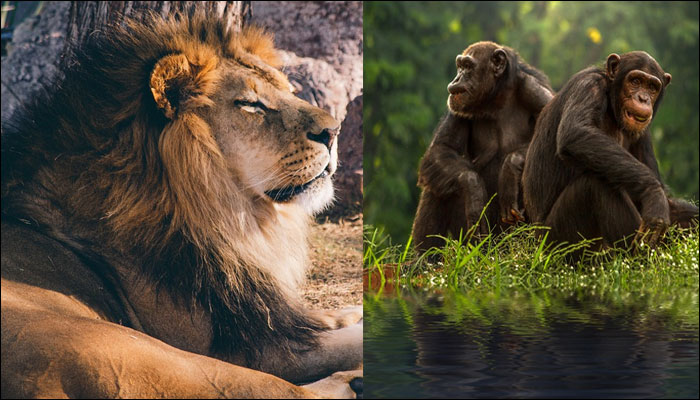New Delhi: Animals complete our ecosystem. But, human activity, climate change and global warming are some of the reasons that are drastically affecting the flora and fauna of our planet along with the environment as a whole.
The magnitude of the impact is so extensive that the animals are disappearing at a fast rate and gradually inching toward extinction. Many animals are also slowly but steadily approaching the endangered list.
On Saturday, 34 endangered animal species including lions, chimpanzees, giraffes, leopards and a wide variety of sharks have ben enlisted to receive added protection at a UN wildlife conference in the Philippines.
These species were selected to receive heightened conservation efforts at the Conservation of Migratory Species (CMS) conference that just concluded in Manila. Protecting migratory species poses particular difficulties since they cross borders, including possibly moving to countries with less stringent wildlife protection systems, said Bradnee Chambers, CMS executive secretary.
“If the species is moving around all of these countries, everybody has to pitch in,” he said at the end of the week-long conference. Lions, leopards and chimpanzees were singled out as needing more conservation work. The chimpanzee in particular is at risk as their numbers have dropped sharply in recent years due to habitat loss, the organisers said.
The giraffe, which is in decline throughout Africa with fewer than 90,000 animals left in the wild, was also listed. All four of these African mammals were approved by a “wide majority” for additional protection measures, a CMS statement noted. “Everybody in this room can identify with these animals,” Chambers remarked.
Vultures and sharks
Less popular species also received additional protection, including 10 species of vultures. Chambers said these birds provided a vital service by cleaning out carcasses, which prevents the spread of diseases like anthrax and rabies.
Also listed was the whale shark, the largest fish in the world. Host country the Philippines had lobbied for this creature, which has become a major tourist attraction. Three other shark species – the angelshark, the dusky shark and the blue shark – were also listed along with three species of rays, the organisers said.
Activist charity group the Pew Charitable Trusts praised the CMS action, saying it was crucial to save these marine animals. “In some regions, the newly protected shark species have experienced population declines of 50 percent or more,” Pew shark conservation expert KerriLynn Miller said in a statement.
China makes progress
More than 120 states are party to the CMS, but this does not include China and many other Asian countries. “We’re trying to work to bring China onboard as a member of the convention. We have been engaging them and they are actually doing quite a bit,” Chambers told reporters.
China had already made some progress, banning shark fin soup in official banquets and announcing a ban on ivory by the end of 2017, he said. “What it required is positive engagement with the country to see how to find solutions instead of just bashing the country and looking at the negative side.”
AFP

